AERA
Latest News
College of Education Faculty and Alumni Represent CSUDH at 2022 AERA Annual Meeting
Due to the travel restrictions resulting from the COVID-19 pandemic during the past two years, the field of education entered a somewhat lull period with academic conferences being cancelled or being held virtually. Now that the restrictions are lifted and things are returning back to pre-pandemic levels, events are being held in-person and there seems to be a resurgence in the world of academia. While an innumerable amount of conferences exist, there is one in particular to which educators are particularly attracted: the American Educational Research Association (AERA) annual meeting. AERA is the world’s largest gathering of education researchers and a showcase for groundbreaking, innovative studies in an array of areas.
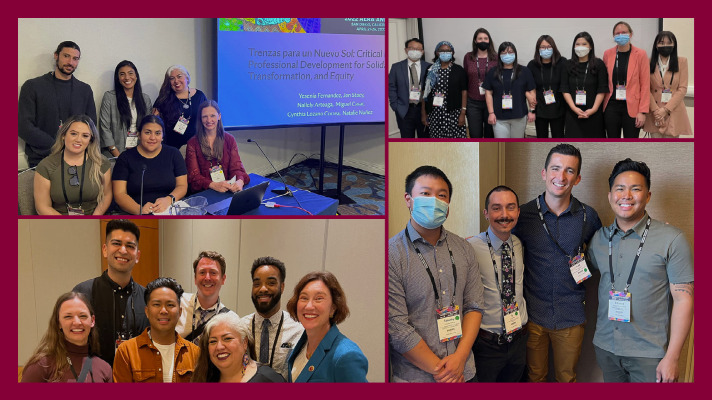
The 2022 AERA Annual Meeting was held this year in San Diego, California from April 21-26 in a hybrid format, giving the option to participants to attend live or virtual sessions. This year’s theme was "Cultivating Equitable Systems for the 21st Century," and among the topics that were discussed were the residual effects of what the conference organizers refer to as the four pandemics: the COVID-19 pandemic, the pandemic of systemic racism, the economic crisis, and the climate crisis.
The reopening of in-person sessions brought a larger-than-usual number of College of Education (COE) faculty and student alumni to participate at this year’s conference from almost every department in the College, including the Department of Liberal Studies, the Division of Teacher Education, and the Division of Graduate Education. The COE represented California State University, Dominguez Hills at the 2022 AERA Annual Meeting with a cohort of twelve faculty members and six alumni.
Below is a list of the faculty and alumni who presented at the conference, which includes the title of their presentation(s) and an abbreviated abstract. View the full online program here.
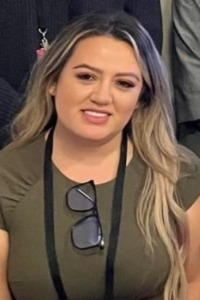
Nallely Arteaga, Ph.D.
Assistant Professor in the Division of Graduate Education
Presentation: El Instituto: Cultivating Bilingual Teachers' Linguistic Capital Through a Raciolinguistic Approach
Abstract: Traditional teacher learning is mostly conceptualized through prescribed curriculum in school-based and district-sponsored professional development opportunities, that are often race-evasive and framed through dominant, neoliberal, and deficit ideologies that foster linguistic hegemony and privilege English language learning. For Spanish bilingual teachers, critical professional development becomes a much-needed opportunity that can provide a space to engage in critical and dialogical learning when completely facilitated in Spanish.

Stephanie Cariaga, Ph.D.
Assistant Professor in the Division of Teacher Education
Presentation: Toward Pedagogies of Wholeness: Centering Intimacy, Interdependence, and Healing in an Aspiring-Abolitionist English Classroom
Abstract: Trauma has a significant impact on marginalized communities and schools, even as youth continue to demonstrate resilience in the face of adversity. Love calls educators to become abolitionist teachers to disrupt structural trauma in and out of schools, while Winn calls for a restorative English education to utilize literacy as a platform for healing. This study therefore asks: how can a teacher utilize the subject matter of English Language Arts to support Students of Color to heal from trauma, both individually and collectively?
Panel Discussant: Revisiting and Reinventing a Feminist Freire: Woman of Color Pedagogies of Love
Abstract: This panel explores the relationship between love and Paulo Freire’s critical praxis. Despite the culture of lovelessness and dehumanization students and teachers encounter in urban contexts, we draw upon women of color epistemologies and experiences to take on Freire’s task to teach with “a forged, invented, and well-thought-out capacity to love” within learning spaces.
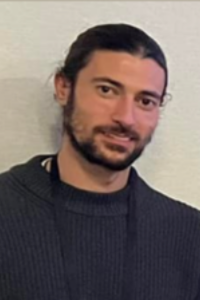
Miguel Casar Rodríguez
Adjunct Professor in the Department of Liberal Studies and Ph.D. Candidate at UCLA
Presentation #1: The Power of the Word: Reimagining Dual Language Learner Teacher Identity Within Ideological and Political Struggle
Abstract: Marking a clear departure from proposition 227, which enforced English only education, Dual Language (DLL) programs have grown exponentially in California. What once was clearly a terrain of power and politics, cultural citizenship and sovereignty debates, and long-standing struggles for self-determination, linguistic justice, and language as a means of cultural sustenance is now quickly gentrifying.
Presentation #2: Developing Strong Relationships With Each Other and With Our Teachers Makes Us Feel Safe: Redefining Safety and Galvanizing Our Peers
bstract: This paper and presentation will use participatory action research and ethnographic methods to explore how youth organizers from numerous schools in a single school district built power among students and developed coalitions with teachers and adult-led community organizations to impact education policy regarding safety, policing and financial resources for targeted academic support. This is a first-person, student account that is guided more by the social movement praxis of the Black Panther, Party and Black Lives Matter Movement, than by a specific theoretical perspective, we describe our experiences.
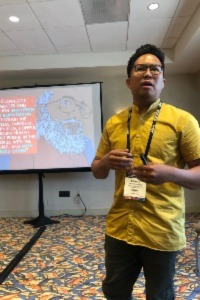
Edward R. Curammeng, Ph.D.
Assistant Professor in the Division of Teacher Education
Presentation #1: Critiquing Empire Through Desirability: 40 Years of Filipinx Americans and Educational Research
Abstract: Curammeng and colleagues shared findings from their recently published study in Review of Educational Research. They conducted a semi-systematic review of forty years' worth of literature to analyze the educational experiences of Filipinx Americans.
Presentation #2: Beyond Stopping Hate: Cultivating Safe, Equitable, and Affirming Educational Systems for Asian/Asian American Students
Abstract: Curammeng was as an invited panelist for this AERA Presidential Session to discuss the unique needs of Asian and Asian American students, amidst recent U.S. based anti-Asian violence.
Presentation #3: Conceptualizing Critical Race Coding: An Approach for Applying Critical Race Theory in Educational Research
Abstract: Curammeng organized a symposium to discuss how education researchers are advancing critical race studies in education. His paper discussed a methodological innovation for qualitative researchers using critical race theory.
Presentation #4: Reinventing Curriculum and Instruction With Ethnic Studies: An Autoethnography of an M.A. Program
Abstract: This paper documented a four-year process of how a graduate program changed to embed Ethnic Studies Education and justice-centered frameworks in its preparation of all MA candidates.
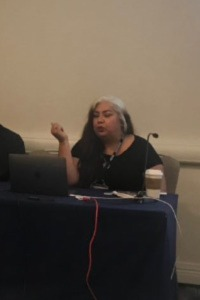
Yesenia Fernández, Ph.D.
Assistant Professor in the Division of Graduate Education
Presentation: Critical Professional Development: Fostering Anti-Oppressive Inertia in Teacher Solidarity, Activism, and Ideological and Pedagogical Transformation
Abstract: The popularity of Dual Language (DL) through Two-Way Immersion (TWI) programs is related directly to their value to English speaking, primarily White and middle-class families as a result of an interest convergence: said interest convergence has served to further silence the needs of minoritized students. This paper examines how six years of El Instituto’s counter-hegemonic bilingual teacher critical professional development challenged systemic institutional oppression (resulting from interest convergence) and transformed ideologies of bilingual teachers who were once students harmed by these often racist academic spaces.
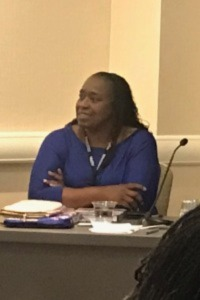
Kitty Fortner, Ed.D.
Associate Professor in the Division of Graduate Education
Presentation #1: Equitable Education: Experiences Voiced by Women of Color
Abstract: Exploring the experiences of women of color seeking leadership positions in the field of education has led to a better understanding of how universities and educational organizations can create inclusive and supportive environments for women of color. Participants were women of color who received their doctoral degree in educational leadership within the last 12 years and currently work as leaders in the field of education.
Presentation #2: Challenges Experienced by Women of Color in Educational Leadership
Abstract: The authors will present a critical dialogue about the need for promoting women of color in educational leadership positions and presents the positive effects they have on issues of racism, poverty, aggression, oppression, hostility and/or privilege. There continues to be many issues women of color face as they pursue both an advanced education and leadership positions in education.
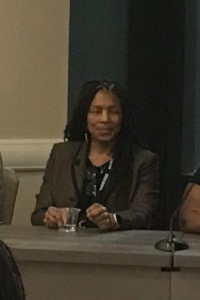
Laurie Inman, Ed.D.
Chair and Lecturer in the Department of Liberal Studies
Presentation: Advancing Racial Equity and Social Justice Through Partnerships Between Teacher Preparation Programs and Pre-K–12 Educators
Abstract: As more scholars shine spotlights on the role of teacher preparation programs in developing teacher candidates who are prepared to practice racial equity and social justice in their future classrooms, the contributions of foundations courses, methods courses, and clinical experiences are all coming under more intensive scrutiny. This paper will describe how three universities are investigating the impact and effectiveness of these pillars of their teacher preparation programs and working with P-12 partners to develop and implement improvement strategies.
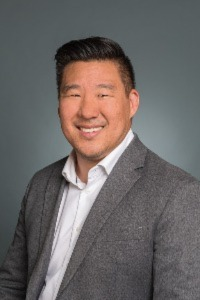
Jarod Kawasaki, Ph.D.
Assistant Professor in the Division of Teacher Education
Presentation: Revisiting the Relationship Between Epistemology and Learning
Abstract: A growing body of research has focused on individual differences that predict learning effectiveness and knowledge acquisition. Little is known as to how differences in epistemology - how one justifies a belief - effect the quality and accuracy of conclusions people draw.
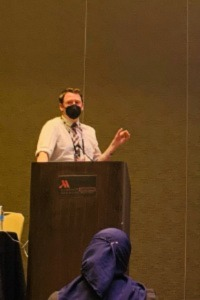
Mike Karlin, Ph.D.
Assistant Professor in the Department of Liberal Studies and Director of Snap Inc. Institute for Computing Education (SICE)
Presentation: Teacher and Student Experiences in a Gender-Inclusive Secondary Computer Science Program: Strategies for Broadening Participation
Abstract: Despite a nationwide emphasis on increasing computer science (CS) education access, there are considerable equity issues within the field, including a significant gender gap. We conducted an ethnographic case study within a gender-inclusive high school CS classroom to better understand teacher and student experiences, and to explore how the program achieved more equitable levels of CS participation.
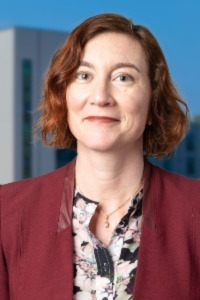
Jessica Zacher Pandya, Ph.D.
Dean and Professor in the College of Education
Presentation: Centering Children's Voices and Purposes in Social Semiotics Research (co-authored with David E. Low, Associate Professor from CSU, Fresno)
Abstract: In this paper, the co-authors highlight children’s perspectives on multimodal composing. We examine how they interpreted the properties and purposes of the semiotic modes with which they designed videos, and we attend to how child-led theorizing aligns with, and may complicate, academic theories.

Minhye Son, Ed.D.
Assistant Professor in the Division of Teacher Education
Presentation #1: Multiplied Assets and Doubled Burden: A Collaborative Self-Study of Asian Immigrant Mother Scholars
Abstract: Drawing on transnational feminist perspectives, this collective self-study examines the individual and shared experiences of transnational scholars who are raising emergent bilingual children.
Presentation #2: Preservice Teachers' Learning to Design Curriculum for Inclusive Bilingual Education: Capturing Relevant Aspects of Curriculum
Abstract: This study aims to understand how the conceptions of curriculum of teacher candidates could evolve toward more hybrid understandings while participating in a graduate curriculum course for inclusive bilingual education.
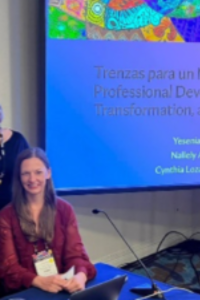
Jen Stacy, Ph.D.
Associate Professor in the Department of Liberal Studies
Presentation #1: Parent-School Relationships With Transnational Families: Lessons for Mexican Teachers From a U.S. Family Literacy Program
Abstract: This presentation shared the story of Yolanda, a mother from Jalisco, Mexico who was enrolled in a family literacy program at her daughter’s public elementary school in Nebraska and puzzled through the tensions of relationships between transnational families and U.S. schools. This presentation was a part of a broader panel that offered insight strengthening professional development for teachers in Mexico who teach transnational students who have returned to Mexico after attending school in the U.S. by focusing on the different educational aspects of transnational families’ experiences.
Presentation #2: "This Is My Spanish. That's Part of Who I Am": Sociocultural Languaging in Professional Development
Abstract: Stacy explored how sociocultural elements of language were explored, practiced, and applied by dual language teachers during a weeklong critical professional development experience. Findings suggest that centering sociocultural languaging both as subject matter and pedagogy in critical professional development supported teachers in seeing how bilingual education was social, cultural, and political, facilitated nuanced professional and personal growth, and reified commitment to humanizing praxis in bilingual education.
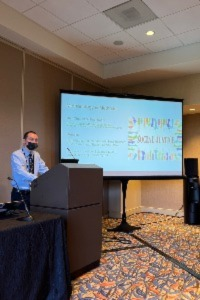
Ty Cetorelli
’21 M.A. in Education: Curriculum & Instruction
Presentation: Calculating Critical Consciousness: A Case Study Examining Student and Teacher Perceptions of Social Justice Mathematics
Abstract: In “Healing-Informed Social Justice Mathematics: Promoting Students’ Sociopolitical Consciousness and Well-Being in Mathematics Class,” Kokka describes the main goal of Social Justice Pedagogy as developing “students’ academic proficiency and students’ sociopolitical consciousness, or conscientização, to critically analyze and change the world.” In light of widespread emphasis on students’ procedural understanding and preparation for high-stakes standardized testing in math classrooms, there is a need for a pedagogical shift to a more critical approach to mathematics education.
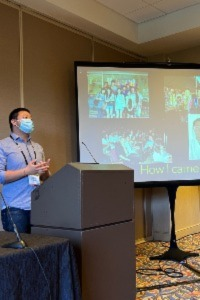
Tim Chang
’19 M.A. in Education: Curriculum & Instruction
Presentation: Toward a Critical Science Education: Curricular and Pedagogical Frameworks for Justice-Oriented Science Educators
Abstract: With the continued implementation of Ethnic Studies in K-12 schools, support for how teachers can embed justice is increasing, most salient in literacy and social studies contexts (Curammeng, et al., 2016; de los Ríos, 2017; Valdez, 2018). However, few empirical studies have focused on the intersection of Ethnic Studies and social justice education in the sciences. There exists a need for a curricular framework for justice-oriented science education especially chemistry and physics.
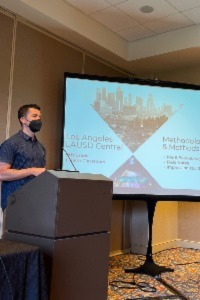
Matt Fitzpatrick
'20 M.A. in Education: Curriculum & Instruction
Presentation: Hacking the System: Digital Technologies, Social Media, and Action Research in a Health Science Classroom
Abstract: Research has a critical role in a high school science classroom. However, teaching students the process of conducting research has been slow to consider digital tools and their unique capabilities that students can use to make meaningful connections between their lived experience and scientific inquiry. This study examined the use of social media by students as a tool to conduct research on a health-related topic impacting their school and community.
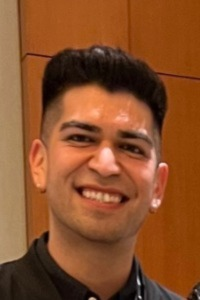
JC Lugo
’18 in M.A. in Education: Curriculum & Instruction and Ph.D. student at UCLA
Presentation: Embodiment as a Practice of Literacy: Advancing Critical Race Theory's Tenet of Experiential Knowledge
Abstract: In 1997, Daniel Solórzano identified key tenets for engaging critical race theory in education. One of the major tenets is “the centrality of experiential knowledge” which posits that the lived experiences of People of Color are “critical to understanding, analyzing, practicing, and teaching its relation to racial subordination.” In K-12 classrooms, this tenet is demonstrated through assignments such as storytelling and family histories that allow students to critically share and analyze what they and their communities have experienced.
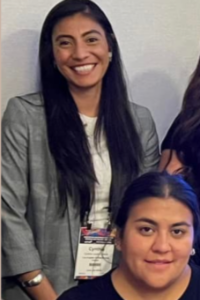
Cynthia Lozano
’14 B.A. in Liberal Studies and ’19 M.A. in Education: Curriculum & Instruction
Natalie Nuñez
’20 M.A. in Education: Dual Language Learning
Presentation: Rejuvenated Praxis: Bilingual Teachers' Pedagogical Transformation Through Critical Professional Development
Abstract: Understanding bilingual teachers’ learning experiences, development of ideological clarity, and pedagogical evolution within Critical Professional Development (CPD) requires detailed portraiture that documents complex processes of professional learning and growth. This paper tells the story of two elementary bilingual teachers in Los Angeles who participated in El Instituto and offers insight to how their critical praxis was informed by the CPD experience.